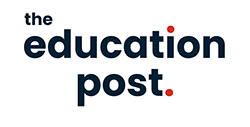
If you want to pursue a masters in public health program, you might be taking a significant step to shape your career and impact individuals and communities positively. This master’s degree will equip you with the skills and knowledge you need to address public health challenges, from disease prevention to healthcare policy. In this article, we will explore the essential considerations, including career aspirations, program requirements, financial investment, and potential job opportunities, of a master’s program in public health.
Understanding the Degree
A masters in public health is a multidisciplinary degree made for people with an interest in improving health outcomes at a macro level. Unlike clinical degrees that focus on individual patient care, a master’s program in public health teaches you about the broader health concerns of the general public, including epidemiology, biostatistics, health policy, environmental health, and behavioral sciences.
Through your coursework, research, and field experiences, you will learn how to design, execute, and evaluate health programs, analyze public health data, and formulate policies that improve general community health. Many public health degree programs will also allow you to pursue certain specializations, including in the areas of global health, infectious diseases, health policy, or community health promotions.
Assessing Your Interests and Career Goals
Before deciding to commit to a masters in public health, you should first reflect on your passions and professional aspirations for the future. Public health is a diverse field, and graduates can pursue careers in various sectors, including government agencies, non-profit organizations, healthcare institutions, and research organizations. Some questions that you can ask yourself to guide your decision-making process are:
- Do you have a passion for preventing diseases and for the promotion of health on a community level?
- Are you passionate about reducing health disparities and addressing social determinants of health?
- Are you keen to work in health policy, research, or healthcare program implementation?
After introspecting, if you think you do have a passion for healthcare with a large-scale impact, then a master’s degree in public health can be a great fit for you. Below are some common career paths for MPH degree holders:
- Epidemiologists: Investigate disease patterns, causes, and effects and then inform public health policies.
- Health Educator: Develop programs that promote wellness in general communities.
- Public Health Administrator: As a PHA you will have to manage healthcare facilities, oversee budgets, and develop policies.
- Policy Analyst: Research and shape health policies that impact public health systems overall.
- Environmental Health Specialists: Study environmental factors that affect public health, such as pollution and climate change.
Educational Background and Prerequisites
Masters in Public Health programs welcome students from various academic backgrounds, including biology, social sciences, nursing, and even business or communications. However, some programs may require prerequisite courses in subjects like statistics or biology.
Additionally, do note that if your undergraduate degree is unrelated to health sciences, you may need to take additional courses before applying for a public health master’s program. Some programs also require work experience in a health-related field, so check the admission requirements of schools that interest you.
Program Formats and Flexibility of Course
Master’s programs in public health come in different formats to accommodate the various needs of a diverse body of students. You must think and consider which format best suits your career goals:
- Full-Time MPH: Typically a two-year program, ideal if you want to dedicate yourself to full-time studies.
- Part-Time MPH: This is generally for working professionals, allowing you to take classes over a longer period. The program may take three to four years to complete part-time while you continue to work.
- Online MPH: Offers flexibility if you need to balance work, family, or other commitments while pursuing your degree.
Finances
A master’s degree will require financial investment from your end to pursue, so it’s important to plan carefully. Tuition fees for programs vary widely and depend on the school, country, and format. Beyond tuition, you should consider the finances necessary for books, housing, and professional development opportunities.
Funding options include:
- Scholarships and Grants: Many universities, government agencies, and non-profits offer financial aid for public health students.
- Graduate Assistantships: Some programs provide tuition assistance and stipends in exchange for research or teaching work.
- Employer Tuition Reimbursement: If you are already working in healthcare or public service, your employer may help cover tuition costs.
- Student Loans: Federal and private loans can help finance your education, though it’s essential to research and carefully consider repayment plans and interest rates.
Practical On-Field Experience
Most masters in public health programs incorporate internships, practicals, or fieldwork to equip you with hands-on experience. This practical training allows you to apply what you learn in real-world settings, such as government health departments, hospitals, international organizations, or research institutes.
If you gain such experience before graduation, you will become more competitive in the job market and this will help you build a professional network.
Job Markets and Prospects
A master’s degree in public health opens doors to diverse career opportunities in both the public and private sectors. Public health professionals are in demand worldwide, particularly in the wake of global health crises like the COVID-19 pandemic. While salaries vary by location, experience, and sector, degree holders in public health have a variety of long-term career stability options and advancement opportunities.
Balancing Commitments and Workload
Graduate studies require dedication, time management, and resilience. If you are juggling work or other responsibilities, consider how you will manage coursework and fieldwork requirements. Online and part-time options to complete your degree can help create a better balance, but you will still need strong organizational skills to succeed.
Concluding Remarks
A masters in public health is a very resourceful degree that can lead to rewarding career opportunities. By researching and considering your interests, educational background, finances, and future career goals, you can determine if this program is the right fit for you. If you are passionate about making a difference in healthcare and want to make it more accessible as well as shape public policies, a master’s degree in public health could be the perfect step forward in your professional journey.



